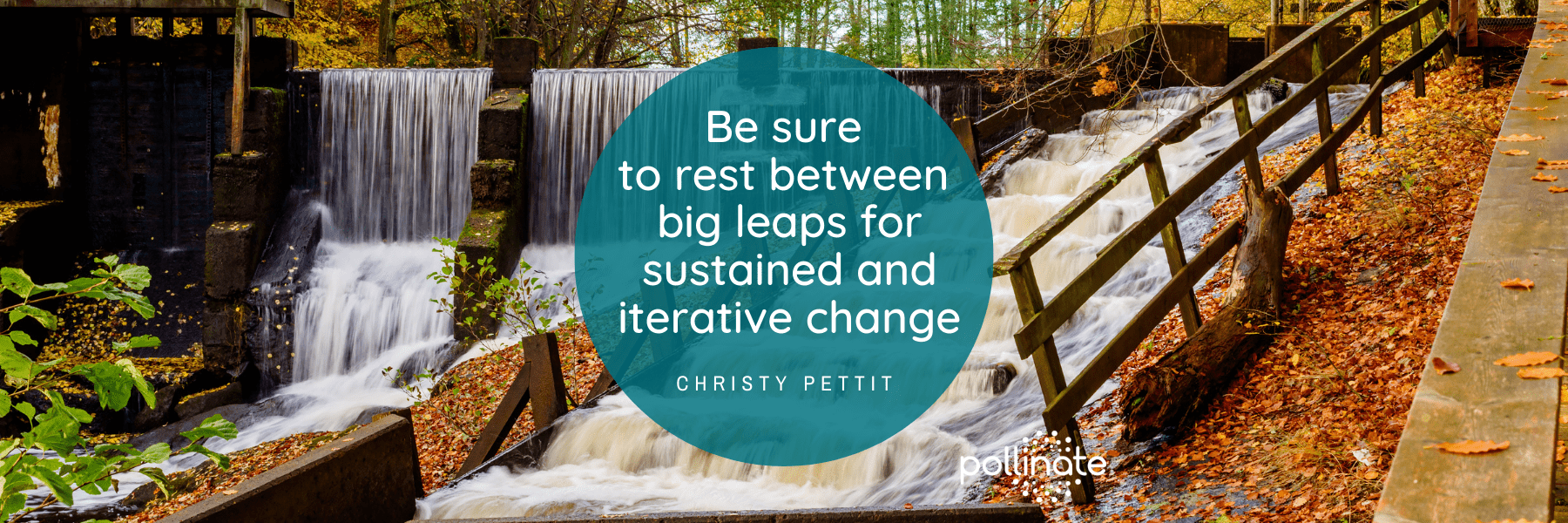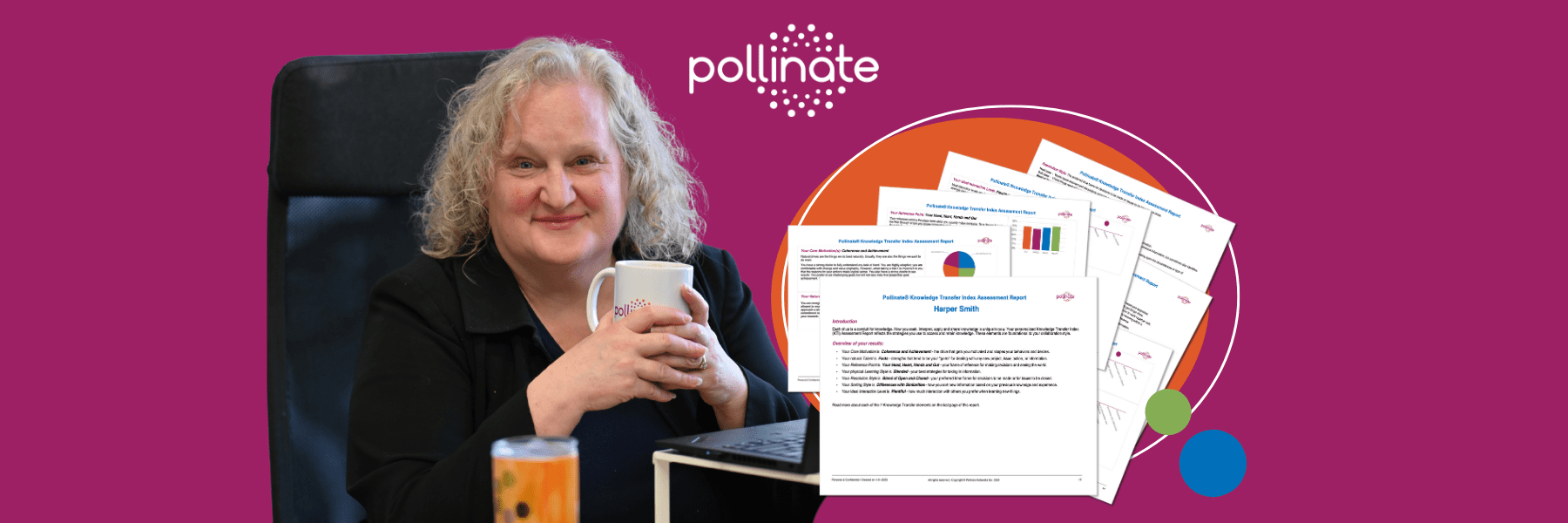

I hit the wall so hard a few weeks ago I left a Christy-shaped dent. When I looked around, I realized there was a swarm of people experiencing the same thing, either trying to shake it off like me, or in various states of impact. Right about that time, the interwebs served up the observation that six months into a prolonged crisis, people often hit a wall of desperation and depletion.
The fact that there are so many of us charging against a strong current (like being in a riptide), finding our way up to “the wall” through a season of global pandemic churn, reminds me of the salmon run in Owen Sound where I grew up. The salmon would jump at the water pouring over the Mill Dam; the strongest and most agile forging up the concrete waterfall and almost making it over before being swept back. Legend has it some fish made it over the dam but I never saw it. There was a fish ladder at the side of the dam. We cheered as salmon made their way up the ladder, resting between big leaps and finally swimming into the calmer pool of water above.
Our task at work right now is to try to stay on top of things while we are finding the ladder. It’s about getting a structure in place that will support forward motion and continuity while there are impassable barriers and churn around us. I’ve talked about leadership and team effectiveness practices to create that framework in previous blog posts. Our fish analogy adds another important dimension to the solution.
We know from research that fish ladders enable certain migratory fish to get through dammed areas, but they don’t help all fish equally. Strong leapers do better; other worthy creatures are built for other things. While we all aspire to be like the most athletic salmon, able to leap up the steps, as with wildlife we are all different. There is a tension around pace and timing, where to focus, what’s important based on the kind of creature we are and the habitat we are from.
We are all in new waters in this pandemic. To sustain ourselves in a time of such uncertainty and to sustain the changes we need to make to thrive, it is important to look for sign posts that we are moving ahead. Many of us no longer have a day-to-day life that frames our work in the same way that it was structured when people spent more time face-to-face. The “new way” is still evolving. Our interactions have changed: building relationships mainly on Zoom is a challenge. Especially now, there must be a blend of group and individual support.
If we take our wildlife example one step further, we might think about sustaining people and organizations through continuous change, the way that Steven J. Cooke, an ecologist and physiologist at Carleton University, thinks about getting more fish over the ladder: “Arguing for more fish passage is less important than figuring out what works.” What does it look like to have a process for connecting people so they can work within organizational frameworks, but create their own knowledge and support networks?
Mentorship: a ladder in times of change, challenge and adaptation
We’re no longer just trying to push forward in this pandemic, we’re leaning into a sustained and iterative change. For our fish example, Cooke argues for more naturally inspired pathways for fish ladders: structures that work with the landscape.
Well-run mentorship programs blend both an organizational and an individualized approach to building ladders and scaffolding during times of change, challenge and adaptation. Here’s why:
- One-to-one and cohort-based mentoring enables people to connect with others they may not have access to otherwise.
- Mentees drive their own agendas and get context, advice and information at the pace and in the chunks that they can apply.
- Mentors share ideas for getting up ladders, from experience.
- Mentor-to-mentor support strengthens leadership networks.
- If it’s helpful, pairs can track their score for meeting micro goals.
I believe in mentoring as a method for thriving in transformative times. Again and again, I’ve seen mentoring be the guardrail that keeps people in the game or playing a better game. Mentors are often the wind beneath someone’s wings when they are worried about crashing to earth. They are the much needed light that helps regain perspective. Who did I call when I hit the wall? My mentor. The mutually agreed upon Rx? Look after the urgent. Reflect. Rest a few days then make the next jump.
To keep moving in the waters we are in, we need to come to work with the attitude of both mentor and mentee, leader and apprentice. We must continue to design and re-design supports for ourselves and our teams. Over the past 11 years at Pollinate, the best thing has been seeing people getting together to get things done using our virtual tools. It’s been finding solutions that meet a variety of needs with good information, knowledge exchange and partnerships at the base. We’re weaving together the workplaces of the future. Making the next jump!
Mentorship program best practices for real results
Structured mentorship programs can shift attitudes and behaviours to build effective, innovative, competitive organizations. Get our free guidebook to help plan your program.




